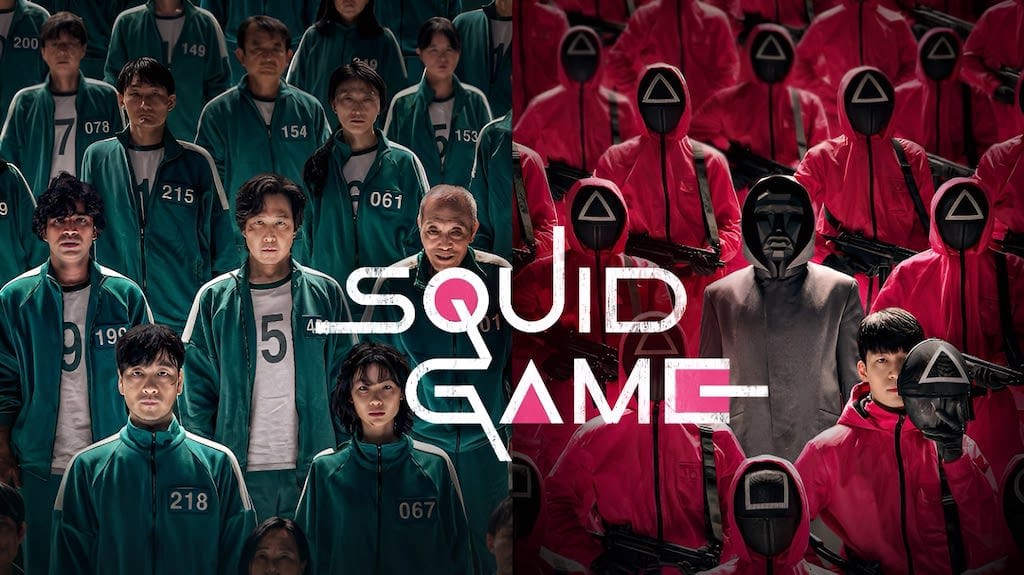How Squid Game Uses Classical Music to Unsettling Effect
In Squid Game, classical music becomes a chilling soundtrack to violence and control. From Haydn to Strauss, explore how the show redefines beauty and power through its ironic and psychologically charged musical choices.

When Netflix’s Squid Game exploded onto screens worldwide in 2021, it wasn’t just the harrowing storyline, the striking visual language, or the socio-political commentary that made it unforgettable. One of the most unsettling aspects of the series was its soundscape—particularly its strategic and ironic use of classical music. From Haydn to Strauss, these elegant, centuries-old works found eerie new relevance as the backdrop to a brutal, modern-day bloodsport. In doing so, Squid Game reminded audiences of the psychological power of classical music and its potential for layered storytelling in a global media landscape.
A Prelude to Mayhem: Haydn’s Trumpet Concerto
One of the first classical pieces to make an impression in the series is Joseph Haydn’s Trumpet Concerto in E-flat major, which plays as the contestants awaken in their dormitory before the start of each game. Traditionally associated with brilliance, optimism, and the spirit of the Classical era, Haydn’s composition is here turned into a sonic harbinger of doom. The music’s bright, triumphant tone underscores a grotesque irony—it serenades the contestants not into battle, but into orchestrated slaughter.
In this context, Haydn’s concerto performs a dual function. First, it evokes a false sense of order and civility, masking the inherent violence of what’s to come. Second, its military fanfare-like quality subtly aligns with themes of regimentation and control, reinforcing the idea that the contestants are part of a twisted game engineered by an elite class for entertainment.
The Blue Danube: Classical Music as Social Satire
Perhaps the most jarring use of classical music in Squid Game is Johann Strauss II’s The Blue Danube, played during the glass bridge game. This piece is, for many, synonymous with grace and grandeur—Walt Disney, Stanley Kubrick, and ballroom dance floors have all given it a pristine, almost dreamlike status. In Squid Game, however, it’s the cruel soundtrack to a contest in which players must step from one glass panel to the next, risking a deadly fall if they misjudge their footing.
Here, the dissonance between what we hear and what we see is psychologically devastating. The music’s flowing elegance stands in stark contrast to the contestants’ panic, fear, and eventual deaths. The juxtaposition amplifies the absurdity of the violence and satirises the detachment of those who orchestrate it. It’s no coincidence that such scenes feel choreographed, almost like a perverse ballet—a reminder that classical music, often viewed as rarefied or ‘pure,’ can be used to frame horrific acts with an unnerving aesthetic sheen.
Baroque Echoes and the Game of Power
The series also features elements of Baroque music, including segments that resemble the style of composers like Bach and Handel. These musical cues tend to appear when the masked VIPs enter the narrative, drinking, gambling, and commenting on the games with chilling indifference. The association of Baroque music—often used historically in royal courts and religious ceremonies—with these moments of elitist voyeurism strengthens the show’s critique of class disparity.
In the world of Squid Game, the Baroque is not noble; it is decadent. The music lends a false gravitas to the shallow pleasures of the ultra-wealthy, turning the tradition of Western classical grandeur into a veneer for moral rot. This isn’t incidental—it’s thematic. It draws from a long history in cinema of using classical music to characterise the upper classes, often to satirical effect.
Music as a Universal Language of Irony
What makes Squid Game’s use of classical music particularly fascinating is its cultural positioning. As a South Korean show intended for a global audience, it chooses to use European classical music to represent structure, power, and detachment. This decision is telling. It suggests that classical music, long considered a symbol of Western intellectualism and refinement, is now a universal shorthand for authority—and sometimes, cold-hearted cruelty.
There is a long tradition in film and television of using classical music as a tool of emotional contradiction. Stanley Kubrick’s A Clockwork Orange famously paired scenes of violence with Beethoven’s Ninth Symphony, creating a nightmarish dissonance between sound and action. More recently, shows like Westworld and The Hunger Games have also employed classical or neo-classical scores to explore themes of control, spectacle, and rebellion. Squid Game steps confidently into this lineage, using music not to soothe, but to disturb.
The Detachment of Beauty
By choosing classical music for scenes of chaos and death, Squid Game does more than create an unsettling mood—it reframes the genre itself. In this world, beauty is divorced from morality. The most elegant music accompanies the ugliest moments. This challenges our assumptions about what classical music is supposed to represent. Can beauty be sinister? Can refinement be a mask for violence?
For viewers unfamiliar with the classical canon, the pieces are simply beautiful, eerie, and incongruous. But for those who recognise the works, there’s an added layer of discomfort. We’re hearing music we associate with concert halls, ceremonial events, and joyful occasions, now functioning as cues for horror and despair. The effect is both jarring and effective.
A Modern Opera of Inequality
In many ways, Squid Game operates like a modern opera. It is grand, theatrical, morally complex, and emotionally heightened. Its characters are archetypes; its setting is surreal; its use of music is deliberate and narrative-driven. Classical music, with its emotional range and historical baggage, becomes the perfect medium to underscore the show’s larger messages about economic disparity, human desperation, and systemic exploitation.
And just like an opera, it leaves room for the audience to interpret, critique, and reflect. The music doesn’t tell you how to feel—it creates a space where multiple interpretations can coexist. Is the Haydn concerto celebratory or mocking? Is Strauss’s waltz whimsical or wicked? The ambiguity is the point.






